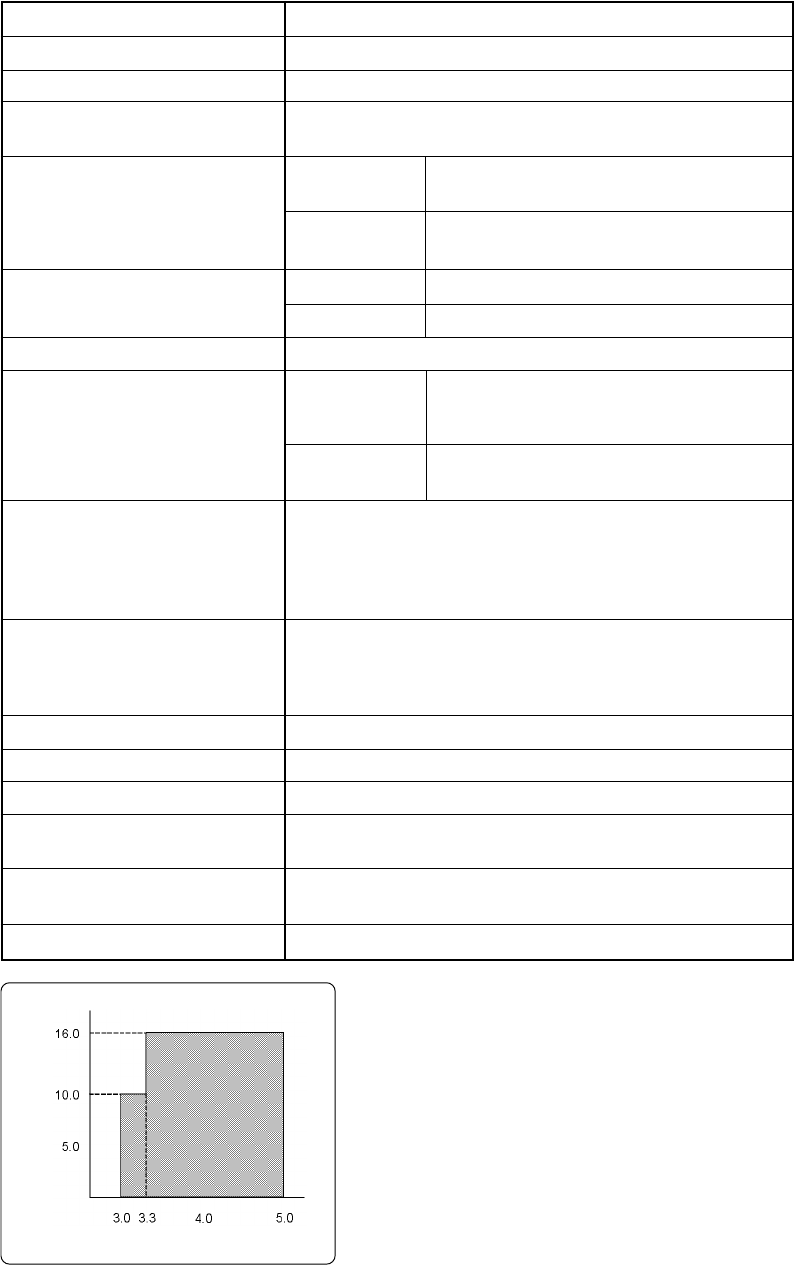
( 34 / 52 )
Chapter 4. Specifications
4.1 Specifications
Table 4.1 lists the specifications of M30620T-CPE.
Table 4.1 Specifications of M30620T-CPE
M16C/62 Group M16C/62A
Single-chip mode
M30622SAFP
For internal RAM area: 20 KB
For internal ROM area: 256 KB
Applicable MCUs*
Usable mode
Evaluation MCU
Internal emulation memory
Main clock (XIN)
Clock mounted on emulator (10 MHz: pre-mounted)
Switchable to external oscillator input.
Clock mounted on emulator (32.768 kHz)
Switchable to external oscillator input.
With the target
Without the target
See the charts below
3.3 V: 10 MHz 0-wait
Clock supply
Sub clock (X
CIN)
Maximum operating frequency
Minimum operating frequency
Power voltage for MCU
and power supply
32.768 kHz
With the target
(set JP1 = EXT)
Without the target
(set JP1 = INT)
3.0 to 5.0 V
(supplied through the LCC probe on the back
of the emulator board from the target)
Fixed to 3.3 V
(supplied from the emulator)
Basic debugging functions
Download, S/W break (64 points), Program execution/stop (allows
free-run execution supporting S/W breaks), Memory reference/
setting (reference/setting C-variables, run-time execution),
Register reference/setting, Disassemble display, C-level
debugging, etc.
•32K-cycle bus information is recordable (Address: 20 bits,
Data: 16 bits, MCU status: 12 bits)
•2 trace modes are supported (Before Break mode/After Go
mode)
Time between program start to stop is measurable
5 to 35°C (no dew)
-10 to 60°C (no dew)
Connect the LCC probe on the back of the emulator board with the
LCC socket mounted on the target.
DC 4.5 to 7.0 V supplied from external (prepare the power supply
separately)
RS-232C serial interface (Max. 115.2 kbps)
Real-time tracing function
Execution time measurement function
Operating temperature
Storage temperature
Connection to target system
Power supply for emulator
Host machine interface
No wait/with wait
Max. operating frequency [MHz]
Power voltage [V]
* This emulator is equipped with M30622SAFP (M16C/
62A Group) as an evaluation MCU and emulates
M16C/62A Group MCUs. In some functions of there
are differences between the MCUs of M16C/62A
Group and the MCUs of other than M16C/62A Group.
Therefore when you use this emulator for debugging
an MCU of other than M16C/62A Group, be careful
about the differences of functions of each MCU. For
details on the functions of each MCU, see datasheets
and user's manuals of each MCU.
This product cannot be used in the operating
frequency and the operating power voltage exceeding
the guaranteed range.


















